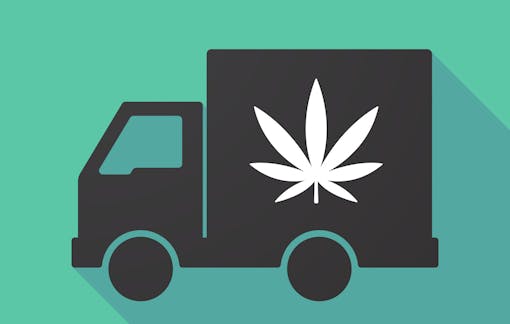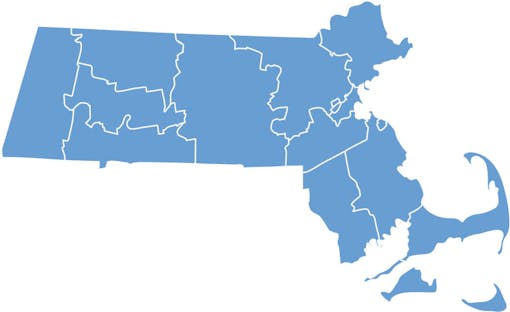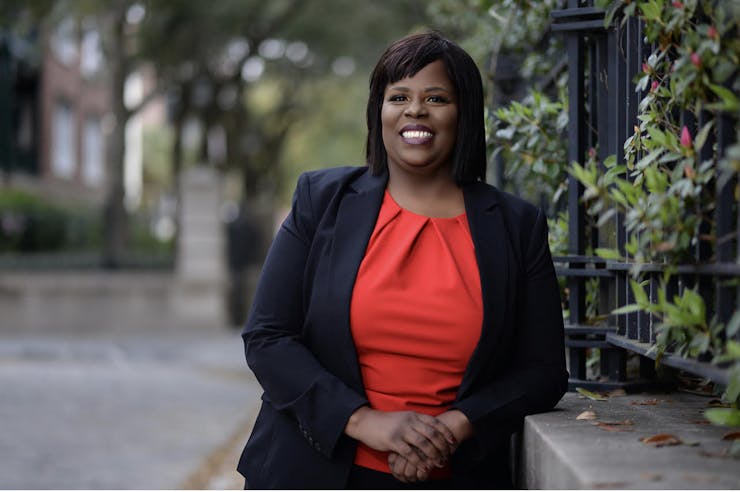Here’s how KushKart raised $3.5 million to bring fast and discreet cannabis deliveries to Massachusetts as soon as this spring
In 2019, Tamika Samson’s sister urged her to look into Massachusetts’ Cannabis Control Commission (CCC) to see if there were any opportunities for her when the state legalized recreational use.
At first, Samson was too preoccupied to investigate. But after learning about social equity programs that prioritized residents and communities that were disproportionately affected by marijuana laws, she was intrigued.
Her location qualified for the program, but Tamika’s zip code was excluded. It seemed like a dead-end until a CCC associate informed her of another way into the industry that helps the children and spouses of formerly incarcerated people. She got her official welcome in early 2020.
A warm welcome in Massachusetts
Since July 2020, Tamika and 30 fellow budding delivery owners have been taking ZOOM classes and maintaining support groups for their fellow social equity participants – a group of 80 students in the program total.

The state specifies that it doesn’t award social equity licenses, instead, incorporating businesses like KushKart into a supportive program that connects them with resources.
“We communicate on a daily basis or more,” explains Samson. “We have weekly ZOOM meetings for our classes we have to take through the CCC. They give us a series of classes learning about the plant, cultivation, retail, banking, accounting – basically everything we would need to know.”
Another part of the program matches business owners with pro bono legal counsel and established vendors who are interested in supporting social equity ventures.
“You can start fundraising as soon as you’re accepted into the program,” says Samson. “You can start scouting investors and trying to put your team together to see how you can make this dream a reality for yourself.”
It’s how Tamika met business partner Taylor Weaver, an attorney and businessman who was ready to take on the challenge of the cannabis industry.
Together, Tamika and Taylor were able to raise $3.5 million to build out KushKart across the state, while maintaining majority ownership of their business. With plans to roll out statewide between late March and early June, Leafly spoke with these phenomenal founders about their inspirations, challenges, and long-term vision for KushKart.
Find a delivery dispensary near you
A commitment to help others
Though the business venture is just now starting, Tamika’s knowledge about health and wellness goes back much farther. Previously, she helped opioid users battle addiction.
“I’m a mental health counselor, and a lot of my clients that I treat for substance use started off with opioids because of pain. Whether they went to the dentist or had to get pain medicine for a car accident, wherever they received their initial dose of opioid medication, they became addicted from there.”
Tamika Samson
“Cannabis is helping individuals with substance use, opioid addiction, mental health issues like schizophrenia, depression, and anxiety. Cannabis has shown to be a great benefit to help those who are trying to beat opioid addiction by helping them with their withdrawals, their cravings, and helping them with sleep and agitation. Cannabis also helps women with a lot of issues specific to their bodies.”
As a health professional, she understands what goes through the minds of people who simply need quality, efficient access to cannabis.
“A lot of people would like to try cannabis for the first time or are currently using cannabis right now, but they don’t want to go to the dispensaries for whatever reason. Some of the lines are long, you’re standing outside waiting on lines, and you’re visible to the public. So, I think that by having delivery, they can get it delivered to their home discreetly. There’s no publicity added to it. The vehicles that we drive are unmarked. So, nobody will know it’s cannabis that’s being delivered to your home.”
What it’s like to be in a state social equity program
Now that Kushkart has its foot in the door, Taylor is happy to pull back the curtain on what it’s like to be in Massachusetts’ social equity program.
“The CCC was very thoughtful in making sure that no one could just come in and take over the business. The license is only available to social equity participants, so of the key requirements is that the applicant that maintained a 51 percent ownership threshold,” Weaver says.
“So, Tamika was allowed to keep that her share, and I was allowed to keep a large portion of the equity. I think that helped shield us from predators in the cannabis industry,” he adds. “Unfortunately, that’s one of the things you do see sometimes. I don’t think it’s necessarily intentional, but since it’s such a new market, nobody knows what the real value is. But we’re in a great position in that we do have spare equity to potentially go out and raise capital again.”
Planning for success in the Northeast
The business is on the brink of opening, currently dotting and crossing i’s and t’s to make sure everything is in order with the state of Massachusetts.

“We’re going to offer premium customer service as well as delivery speed. And because Kushkart has the financing, it will be in a unique position to make sure that it’s one of the best in the market,” Weaver says.
He divulges some real details about what it’s like to get a business venture like this up and running.
“There are a lot of requirements that the CCC has put in their regulations. It’s very thoughtful, but at the same time, it’s very time intensive and it’s very expensive. So, we’re gonna make sure that all of our requirements are met, whether it’s making sure that there are security cameras in every single hallway entrance, adhering to building and vehicle specifications, or securing inventory,” he said.
“We have letters of interest and partnership agreements in place with suppliers, so we’ll be using our funds to buy inventory. We also have to pay employee salaries, drivers, dispatch, and the operating expenses of the business. There’s so much more we’d like to do, but right now, we’re happy to have the funds to clear those operating expenses and cover the property and equipment.”
Tamika has the last word on what’s gotten them this far in the cannabis space.
“Network, network, network. That’s the key component to this whole operation. Get in touch with people. Don’t give up, even if you get a no the first time. Keep knocking on doors. Because there’s gonna be a door that opens up to you, and you’ll be able to see your dreams realized with your business.”
Tamika Samson





